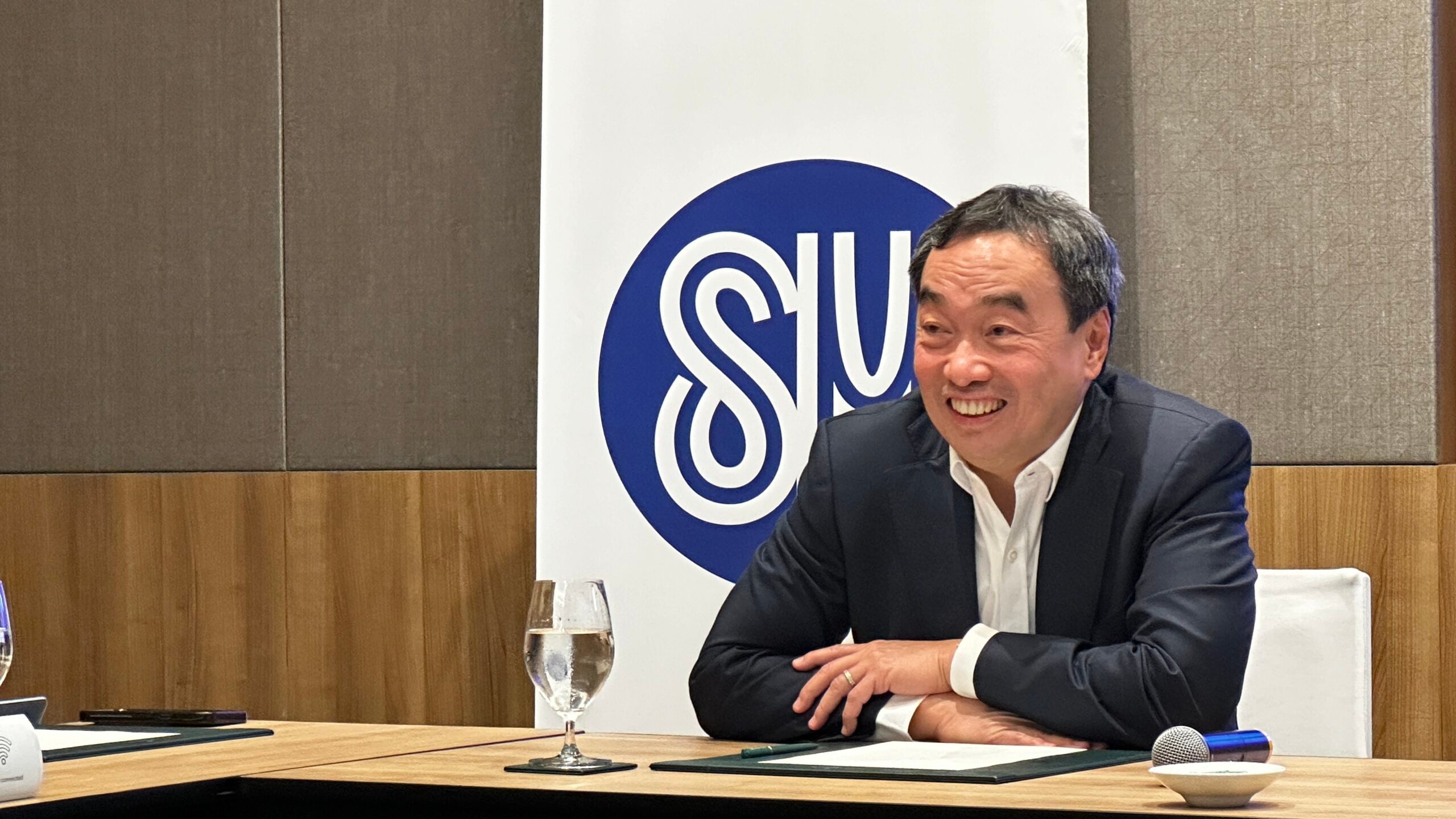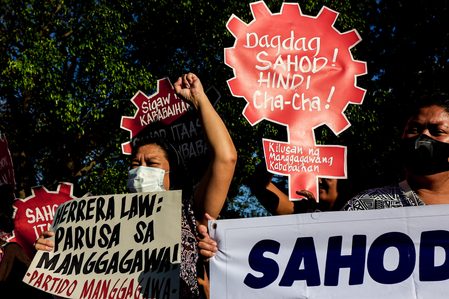SUMMARY
This is AI generated summarization, which may have errors. For context, always refer to the full article.

Will a legislated wage hike hurt the Philippines’ business climate?
That was one of the questions asked of SM Investments Corporation (SMIC) president and CEO Frederic DyBuncio in a recent press briefing, amid business groups sounding the alarm that it would hurt both businesses and consumers.
DyBuncio did not give a categorical answer but noted that SMIC, the Philippines’ largest conglomerate in terms of market value at over P1 trillion, is keeping an eye on the issue as “it will obviously increase operating costs” and have an impact on economic growth.

SMIC is the holding company of the SM Group. The company is engaged in businesses through its subsidiaries, namely The SM Store, SM Supermarket, SM Hypermarket, SaveMore, Walter Mart, Alfamart, SM Prime Holdings, BDO Unibank, and China Banking Corporation.
The Senate on Monday, February 19, unanimously approved on third and final reading the bill that seeks to give a P100-daily increase to minimum wage earners in the country. Meanwhile, the House of Representatives has also started deliberating on various bills but with differing amounts, ranging from P150 to P750.
DyBuncio could not give the number of minimum wage earners in the SM group, but noted that most of their employees earn higher than minimum wage.
“That will affect the minimum wage workers. I think the bulk of our employees are actually higher than minimum wage. Again, it will obviously increase the operating cost, so the question is how much of that increase will be passed on to customers,” Dy Buncio said.
“We still don’t know what the final number would be but we had wage increases in the past and we will be able to adjust our businesses,” DyBuncio said.
The last legislated national wage hike in the Philippines was in 1989, when the Wage Rationalization Act ordered a P25 wage hike from the national P64 minimum wage. At present, Metro Manila’s minimum wage is P610 a day.
Proponents of the wage hikes, however, note that workers with higher wages spend more, thus stimulating the economy.
This point was echoed by SMIC consultant for investor relations and sustainability Tim Daniels.
“If you increase the spending power of the average Filipino consumers…when you look at the GDP of the Philippines, a very high percentage of GDP growth, over 70%, comes from consumer spending…that is something that you would probably see – retail activity in our malls,” Daniels said.
So, are wage hikes good or bad for business?
“It depends on who you ask,” Daniels said.
SMIC reported a net income of P77 billion, a 25% jump from P61.7 billion in 2022. Revenues reached P616.3 billion last year, up 11% from P553 billion.
“A key success driver was the healthy spending patterns of Filipino consumers in both essential and discretionary purchases, particularly in fashion, dining and entertainment,” DyBuncio said. – Rappler.com
Add a comment
How does this make you feel?

There are no comments yet. Add your comment to start the conversation.